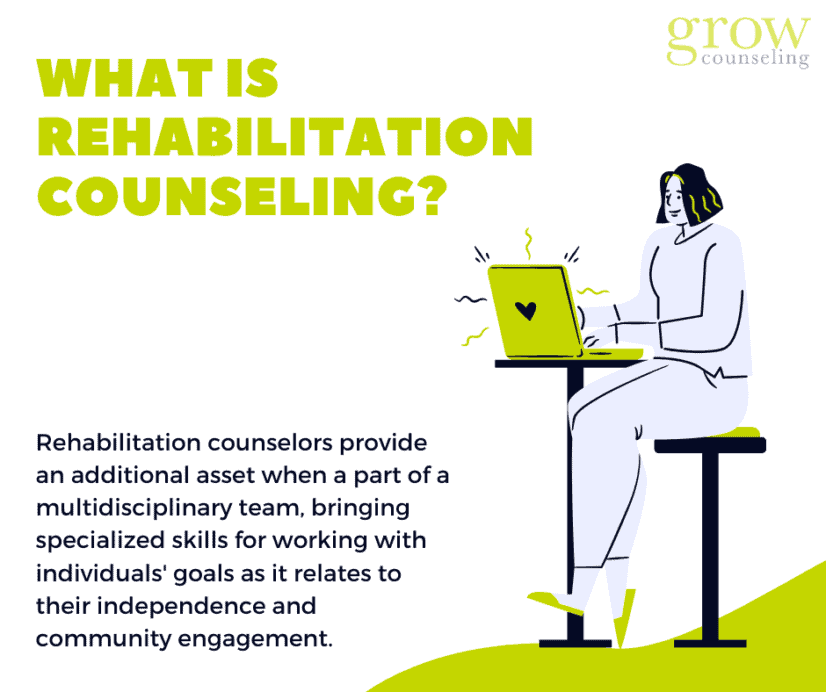Rehabilitation counseling may seem like a fairly narrow specialty to pursue, but it perfectly combined my desire to help people, my fascination with the workings of the human body and brain, and an arguably extreme love for medical T.V. shows.
Grey’s Anatomy notwithstanding, the integrative and holistic approach of Clinical Rehabilitation and Mental Health Counseling (CRMH) provides an opportunity to leverage all my interests on behalf of my clients, their families, and caregivers.
With the training rehabilitation counselors receive, they are equipped to work in a variety of settings. Most often you find them in state Vocational Rehabilitation offices working directly with individuals with disabilities and the individuals personal work goals. However, CRCs can work in private practice settings, community mental health facilities, substance treatment facilities, correctional facilities, schools, state and federal offices for disability, or hospitals in inpatient or outpatient rehabilitation programs.
Rehabilitation counselors provide an additional asset when a part of a multidisciplinary team, bringing specialized skills for working with individuals goals as it relates to their independence and community engagement.
As a rehab counselor in a private practice, my goal is to partner with other professionals to best serve clients with disabilities and their caregivers.
At GROW Counseling, we work to provide quality assessments and therapy to clients by focusing on the emotional, behavioral, and environmental barriers to functioning.
Written by: Emily Ruggles

